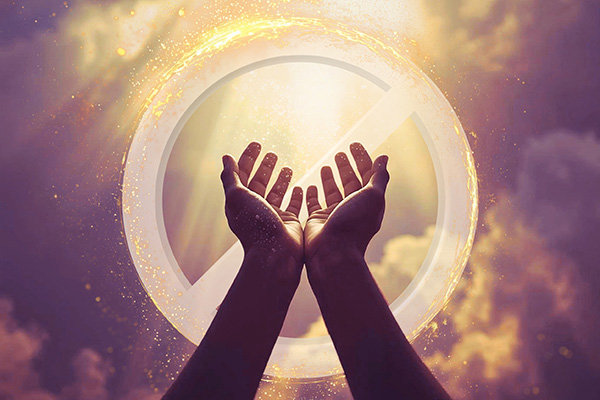selflessness
Small Gestures Of Kindness In A Time Of Cruelty
 Many people are feeling anxious or uncertain in recent years with everything that has been happening in the world.
Many people are feeling anxious or uncertain in recent years with everything that has been happening in the world.
Some are fearful and others stressed or unsure how to act appropriately in these restless times. Some even act out in destructive or dramatic ways, taking their frustration out on others.
It is common knowledge that the digital age and social media has spawned a generation of computer warriors and online bullies who express their insecurities and fears, in often extremely mean and cruel ways, from the comfort of their living rooms and basements.
This savage lack of empathy and decorum has seemingly now spilt over into our streets and neighborhoods too.
It is easier for many to be critical and judgmental, to complain and argue, instead of facing facts, dealing with the truth and seeking lasting solutions.
Often not knowing the entire story, many people choose to see only see one side of things, while telling others off for disagreeing with their limited point of view. The computer has unfortunately given some people a platform to spread strife and hatred, instead of love, hope and kindness.
I pray that more people will strive to seek the truth and learn to look for the good and kind in others. Showing tolerance, patience and kindness is always the better, more open approach. And always remember that if someone attacks you directly, then it often means they are somehow struggling or hurting. It usually serves no real purpose to attack them back. Continue reading
Are You Erasing Your Blessings?
 The unselfish gifts of our time, money, and resources as well as our labors of love bring us many blessings in this lifetime and the next.
The unselfish gifts of our time, money, and resources as well as our labors of love bring us many blessings in this lifetime and the next.
When we are kind and generous to others, we are also showered with good fortune in return. We know this from the ‘golden rule’ of ‘do unto others’ found in many religions and spiritual traditions.
Buy I have read for many clients over the years who are kindhearted and loving people, but complain about their life being very difficult and deprived. They never have enough money, or they cannot find love, or health and well-being seem to evade them. “I am always helping others, but I get nothing in return,” they might say.
Why is this the case? Why are these generous, caring people not being blessed more often for their good deeds?
Well, my guides have made the spiritual cause of this very clear to me. It is my understanding that we do not only add items of charity and compassion to the list of entries on our ‘chalkboard,’ but we also delete or erase them!
You see, when we do a good deed, it gets added to our list of potential ‘return blessings.’ But, if we go around bragging about it, boasting, showing off, telling people how generous or kind we have been, those good deeds become nullified, neutralized, erased. It loses its metaphysical power and spiritual meaning. It can no longer bless us in return.
Love Is Not Just A Battery, It’s Also A Boomerang!
 Love is like a battery. Love is also like a boomerang.
Love is like a battery. Love is also like a boomerang.
When your energy is low, you may feel depleted and think you don’t have any more love to give. The opposite is also true. Complimenting a stranger or showing love to an animal or person re-energizes your battery.
Love is infinite, not finite. The love and joy you give to others comes back to you.
In fact, I often tell my yoga students and psychic clients who are struggling with depression or sadness to compliment at least ten people each day.
It can be something as simple as saying, “I love that shirt!” or “Your writing is so neat!” The smile on that person’s face raises your vibration, healing you as well as them. Most people are struggling with some kind of challenge, and that one compliment can change their day.
Studies have shown that smiling releases hormones that make you happy, while frowning releases hormones that make you sad. Laughing and crying intensifies these hormones. So, smiling at someone or laughing can actually raise your joy level and vibration.
We live in a hate and frustration driven world lately where people are increasingly divided and constantly judging and attacking each other. I belong to several social media groups where people constantly being unkind and intolerant to others. Continue reading
Your Sacred Center Of Self-Love
 We all thrive on being loved. This is natural, of course, if you look back at humanity in history on an evolutionary level. Ancient people came together in tribes, families, and groups, to cultivate a place of safety, security, nurturance, and love.
We all thrive on being loved. This is natural, of course, if you look back at humanity in history on an evolutionary level. Ancient people came together in tribes, families, and groups, to cultivate a place of safety, security, nurturance, and love.
If you were different or stood out in any way, or even left the tribe, you were literally putting your own life at risk. This topic can be viewed from so many arenas, including psychological, spiritual, scientific, and psychic.
I often wonder how and when did we start defining ourselves by how others felt about us, and why did we believe that other’s thoughts about us were true? At what point in time did we allow others to define us? It’s as though we as humanity went into a deep trance.
We all know the phrase, “Love thyself first”. When did we forget this vital piece of information?
There are many ways we can come back in touch with this essential truth, but for the most part, our society does not support a lifestyle that would naturally lead us back to our sacred center of self-love.
How often do you take a moment to look in the mirror, or tell yourself, “I love you?” Most of us feel silly doing this, but it is very healing.
Have you ever met an older person who behaves in ways that are foolish or who just doesn’t give a hoot what anyone else thinks? My paternal grandfather used to throw dinner rolls across the table at me in fancy restaurants. While my parents and other family seated at the table would roll their eyes at my Grampy, I used to laugh hysterically!
The Empowered Empath’s Guide To Spiritual Self-Care
 Empaths, sensitives and intuitives tend to be givers. Loyal, sometimes to a fault, and fiercely protective of those they care about… moving at lightning speed whenever called upon.
Empaths, sensitives and intuitives tend to be givers. Loyal, sometimes to a fault, and fiercely protective of those they care about… moving at lightning speed whenever called upon.
So, when I say to an empath that it may be time to put themselves first, the response is often mixed.
But, if putting yourself first seems too selfish or too difficult, try something simpler: at least put yourself on an equal footing with those you love and care for.
For many sensitive and highly intuitive people, self-care must be an acquired behavior… and it’s a big one. Empaths intend to be selfless, to help, heal and facilitate those they care about. Wonderful!
But remember, if this is your goal, then begin with yourself. The stronger, healthier and happier you are then the more effective, nurturing and supportive you can be to those around you.
Putting yourself first doesn’t mean that you are doing only what you want to do all the time, and it doesn’t mean that you are suddenly going to ignore those you care about.
What it does mean is making it a priority to take care of your own physical, mental, emotional and spiritual needs. This can be a tall order and quite the task for some empaths. Don’t wait until you are in a meltdown… frustrated and snapping at everything and everyone around you, with little or no provocation.

 There are angels and spirit guides that work with us daily. They change at times, depending on what we need. They are always within reach and can hear our requests, our tears, and our laughter. They feel our sadness and joy.
There are angels and spirit guides that work with us daily. They change at times, depending on what we need. They are always within reach and can hear our requests, our tears, and our laughter. They feel our sadness and joy.